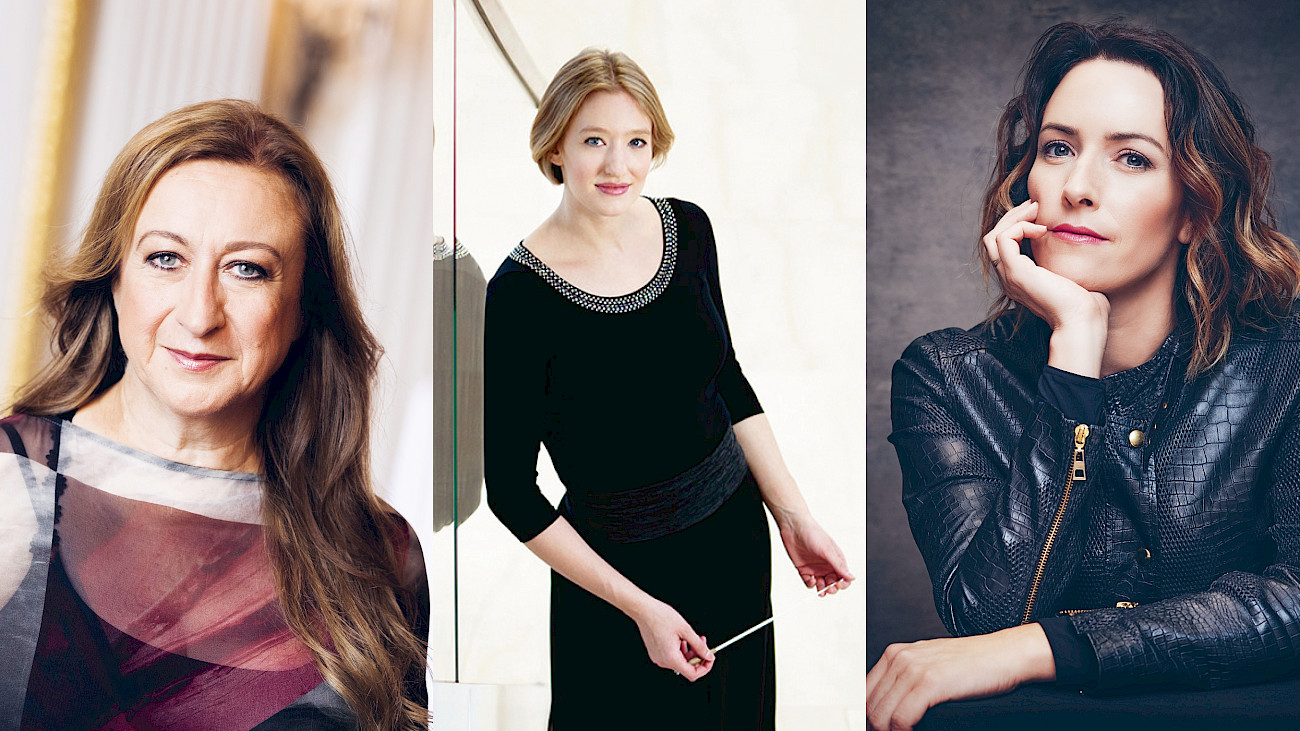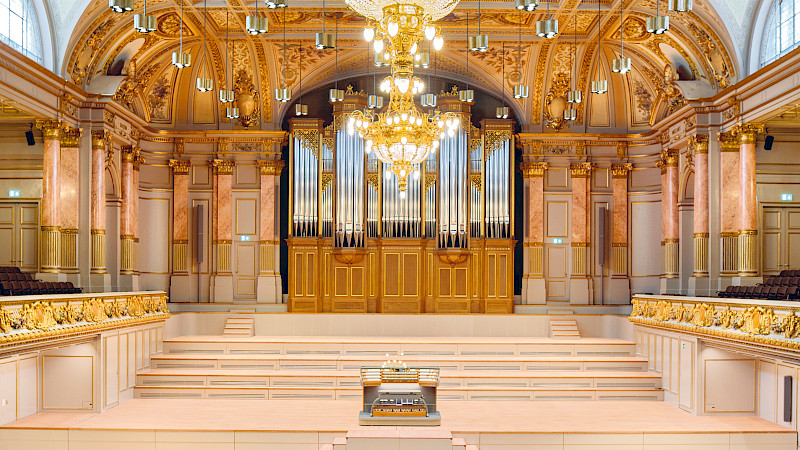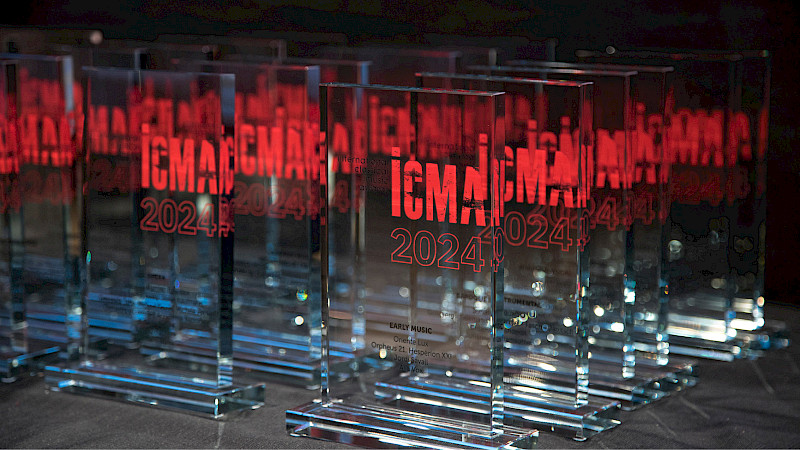
They Are Still Somewhere the First
Two debuts, one return: with Simone Young, Joana Mallwitz and Alondra de la Parra, three prominent female conductors are arriving this season.
"I think we've reached a point now where we just shouldn't talk about it too much": That's Joana Mallwitz's answer when she is asked once again what it's like as a conductor. But you still have to talk about it a bit. Because the pioneering phase for female conductors is not yet over, even if more and more women are on the podium and half of the young conductors in the conducting classes are now female in many places.
This is already evident when reading biographies: almost every female conductor can write that she was somewhere the first, the youngest, the only one. Her male colleagues would have to come up with something to be able to announce such premieres - opening a new hall, for example, or playing the "Alpine Symphony" backwards. Everything else has been done by their predecessors for years, decades, centuries.
So it is nothing special that the three conductors who will stand in front of the Tonhalle-Orchester Zürich this season can also list several "first times". Simone Young (*1961), who belongs to the first generation of truly successful female conductors, was, among other things, the first woman to conduct the Hamburg State Opera, the first to stand in front of the Vienna Philharmonic and in the orchestra pit of the Bastille Opera in Paris - and is probably the first grandmother on the international podiums. Joana Mallwitz (*1986) was Europe's youngest general music director in Erfurt at the age of 27, was the first woman to oversee an opera production at the Salzburg Festival and is now the first female principal conductor of the Konzerthausorchester Berlin. And Alondra de la Parra (*1980) was the first Mexican woman conductor to take off and the first female music director in Australia.
So much for the headlines. Far more exciting is the rest: how they got on the podium. And what they have to offer there.
Simone Young, Kangaroo
In Simone Young's case, there was initially nothing to suggest a career as a musician. Her father was a lawyer, her mother a tailress, and there was neither a record player nor instruments in the family flat in Sydney. When little Simone wanted to take piano lessons, she was allowed to do so - but at first she only had a paper keyboard to practise on.
I wonder if this is what awakened the tonal imagination she has today as a conductor. In any case, this is exactly what she assumes in her performances: "You have to have such a strong, clear image of the sound you expect that there is no room for misunderstanding," she once said in an interview with the "Süddeutsche Zeitung".
However, the path from the paper keyboard to the baton was a long one. Simone Young's talent was recognised early on, but more than a career as an assistant was not foreseen for women at that time. Her good fortune was that she became Daniel Barenboim's assistant in 1991. And he was so impressed by her diligence and her will to do justice to the works that he recommended her to others. For example, to the Vienna Philharmonic, which she conducted for the first time in 1993 - at a time when this orchestra was not yet accepting female musicians.
It helped her, she says, that she was "a kangaroo, an exotic: Australia was much further away then than it is today, so I was allowed to be different". This formulation is not the only indication of the humour with which Simone Young comments on her "otherness". In the documentary film "Knowing the Score" - which, by the way, was produced by Cate Blanchett, the protagonist in the female conductor film "Tár" - she also provides some very biting samples of it. For example, when she recalls how she conducted a "Lohengrin" at the Vienna State Opera while heavily pregnant, and when she looked at the orchestra, which was still exclusively male at the time, she realised that her belly was by no means the biggest.
"Lohengrin" with the Wieners: the constellation is typical for Simone Young. She loves the great works and addresses, she wants to be heard, to make a difference, to decide. In the rehearsals, where she sets her sights directly and without frills. And also as a boss: at the Hamburg State Opera she was artistic director and general music director in one - a gruelling job in which she had to endure some headwinds.
In the meantime, she is often on the other side of the world again as chief conductor of the Sydney Symphony Orchestra. In "Die Zeit", she tells us with subversive pleasure that she has recently started knitting for her granddaughter. And in Europe, she only accepts engagements that really interest her: in the Berlin Philharmonie, for example, at La Scala in Milan - and in November 2023, for the first time, here with us.
Joana Mallwitz already observed Simone Young as a teenager - and decided to become a conductor not least because of her. However, she was a very different conductor from her former role model.
Joana Mallwitz, collaborator
This career once also impressed Joana Mallwitz. The Hildesheim native observed Simone Young as a teenager - and decided to become a conductor not least because of her. However, she was a completely different conductor than her former role model.
Even though Joana Mallwitz's name has become internationally familiar since her "Così fan tutte" at the Salzburg Festival in 2020, she is far less interested in the limelight than in making the "right decision". So now she is taking over the Konzerthausorchester Berlin, the number two in the city behind the Berlin Philharmonic. Of course she knew what she was being compared to, she said in an interview. But her gut feeling was clear: "This is where I want to be for the next few years, with them we can do something and develop. It felt like the next, right place."
The last place, the Nuremberg State Theatre, had already been a "right" place. Here, Joana Mallwitz was able to try out many things, for example in the "Expedition Concerts ", in which she presented works that she was conducting at the same time in the subscription series. The orchestra played passages, she told something about them and sometimes sat down at the piano to show something.
The format became cult, the hall was full, the audience mixed. Joana Mallwitz, who describes herself as "rather closed off next to the stage", got used to speaking in front of an audience. And when Corona came, she moved the "Expedition Concerts" so skilfully into the digital world that, for example, the edition on Beethoven's 8th Symphony was viewed over 500,000 times on YouTube.
One thing leads to another, that's how it is with her. Step by step, via the piano and repetition passages, she became a conductor; and step by step she continues. Her goal is not to tick off as many glamorous debuts as possible, but to be invited back. When she stands in front of the Tonhalle-Orchester Zürich for the first time in July 2024, it could be the beginning of a longer-term collaboration.
Collaboration: this keyword is central to her. How much Joana Mallwitz understands music-making as a trusting collaboration is revealed by the way she talks about it. "Masterpieces don't let you down, they carry you on," she said, for example, in the TV programme "KlickKlack". Or that she is "caught up" by the orchestra. And yes, the consequences of this attitude can certainly be heard in her performances.
Alondra de la Parra, poetess
Alondra de la Parra's phrasing also reveals a lot about her. "I don't dance, I lead," she once said when an interviewer asked her about her gestures. And a concise sentence was enough for her to make clear what distinguishes her from most conductors: "I'm young, a woman and Mexican."
The last point is the most interesting, because for Alondra de la Parra her origins are also a task. At 23, she founded an orchestra that brings together young South and North American musicians. A year ago, she founded a Mexican classical music festival. And again and again she includes Mexican, South American or South American-inspired works in her programmes - also at her next Zurich performance: at the New Year's Eve concert she will combine music by Piazzolla and Chávez with Gershwin's "Cuban Overture" and excerpts from Bernstein's "West Side Story".
This will be her fifth appearance with the Tonhalle-Orchester Zürich, one of over a hundred orchestras in 27 countries she has conducted in her career to date. And not only geographically, but also artistically, she seeks a wide radius: for example, with the interdisciplinary performance "The Silence of Sound", in which she brings together symphonic music, a clown and video installations.
Alondra de la Parra also has a poetic streak. This is shown by her answer to the question Joana Mallwitz would rather not say anything more about: "When I stand at the conductor's podium, I am a woman, but I am also a man at the same time, I am a child, I am a sunset, I am a mountain, I am fire, energy, strength, speed, I am a whole world that the musicians can discover in me - and I discover a whole world in their eyes."
Indeed: with this formulation at the latest, the topic of "conductor" has finally exhausted itself.
Translated by DeepL





